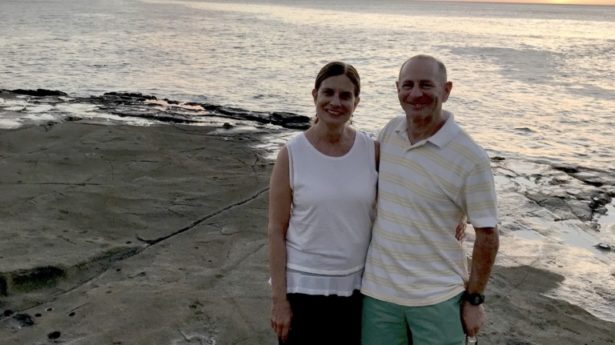The Unitarian Universalist Service Committee advances human rights through grassroots collaborations.
An Update on the Tumult and Terror in Nicaragua
By on August 3, 2018
My friend disagreed with the characterization of President Daniel Ortega and his government as a “dictatorship.” Despite the authoritarian control he exerts and his family’s shady and outright corrupt business connections, my friend felt the designation belonged more appropriately to despots like Anastasio Somoza, the dictator that the Sandinistas overthrew in the 1979 revolution.
“Ortega is authoritarian, and we certainly don’t have a democracy,” said my friend. “He’s twisted up the ideals of the revolution and [given] himself personal control over all the levers of power, but he’s not disappearing or torturing people and we don’t have death squads or things like that going on. Nicaragua is still the safest country in Central America.”
How quickly things change. In early April, students began protesting the government’s mismanagement of a catastrophic forest fire in the most pristine preserve in the country, Indio Maíz Biologic Reserve. A number of the protesting students were beaten by riot police. On April 18, larger protests arose (warning: the video at this link includes violent content) in response to plans to raise social security taxes while cutting benefits. The government responded violently, using live ammunition in their crackdown, and some protesters lost their lives.
Massive and widespread demonstrations have continued throughout the country ever since. The Ortega government has responded to these protests with escalating violence, including the horrific practices that my friend once believed were not in Ortega’s repertoire. Reportedly, citizens have been imprisoned and tortured by paramilitary forces. Earlier this month the National Assembly passed a sweeping new law which, in the name of combatting “terrorism,” has effectively criminalized political protest and made it punishable by up to 20 years in prison. As of July 27, nearly 450 people have been shot and killed and there are reports that groups of heavily-armed paramilitary – not in uniform, wearing hoods to cover their faces – careen through the streets in police and army vehicles, shooting indiscriminately.
Last week, my friend had changed her mind and, speaking with grief and fierce anger, said, “Even in the worst days of Somoza, never has Nicaragua seen the killing of civilians on this level. Never.”
Many share her perspective: protests on July 20 in Managua, included chants of, “¡Ortega y Somoza son la misma cosa!” (Ortega and Somoza are the same thing!). Civil society organizations throughout the country are now calling for Ortega, and his wife and Vice President Rosario Murillo, to resign and for an interim government to oversee new elections. They are supported by the Superior Council of Private Enterprise (COSEP), a conservative Nicaraguan business association, as well as the local Catholic bishops. The Organization of American States and the U.S. Department of State have also called for new elections and a swift end to government repression.
The unrest has paralyzed Nicaragua’s economy, and many businesses throughout the country are shuttered, particularly hotels and restaurants that are part of Nicaragua’s slowly emerging tourism sector. Many thousands of people have lost their jobs. Because travel between cities is sporadic, peasant farmers – the majority of the population – are unable to freely travel and have lost the opportunity to sell their crops and produce.
For those of us who support human rights and social justice, but live far from the struggle, it’s a challenge to know what we can do. Given the long and sordid history of U.S. intervention in Nicaragua, we are especially cautious about how we, as U.S.-based organizations, proceed beyond continuing to hold Nicaragua and our amazing, courageous partners and friends there in our hearts and in our prayers. Though the UU College of Social Justice has had to suspend plans for further trips to Nicaragua at this time, we, along with the Unitarian Universalist Service Committee (UUSC), are deeply committed to our allies and partners there and will continue to press Congress and the Trump administration to advance and support human rights in Nicaragua.
As the crisis unfolds, we are also mindful of the thousands of Nicaraguans currently living in the United States with Temporary Protected Status (TPS). UUSC, along with many of our partners, is working to expand these protections and ensure that TPS holders are not deported to unsafe conditions in their home countries, separated from their families and communities here in the United States. Join us in calling on Congress to pass legislation that ensures their futures are secure.
